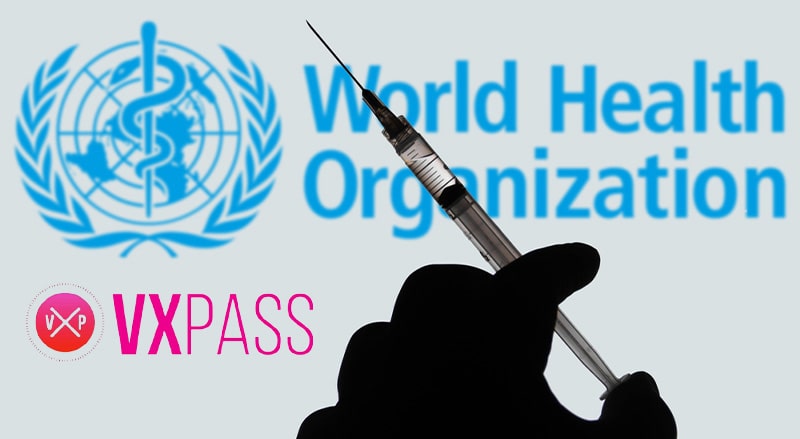VXPASS, the COVID-19 vaccine card provider built on the BSV blockchain, has given an update on the rollout of its digital vaccine monitoring programme in Lesotho. In working towards the rollout of this programme, VXPASS has received support from the World Health Organisation (WHO), the State Department of the United States and the World Bank.
In May 2021, VXPASS announced that it had signed an agreement with the Sesiu sa Tšoele le beta Poho Fund (SESIU), the public-private partnership responsible for the rollout of COVID-19 vaccinations across the land-locked African nation of Lesotho. Under the agreement, VXPASS was contracted to manage the first 560,000 vaccinations to be administered by SESIU in Lesotho, and planned to have a full 1.2 million people vaccinated and verified by the end of 2021.
The company offers a blockchain-based digital vaccine administration and verification platform, with all data being stored on the BSV blockchain. This approach allows for easily and cheaply verifiable vaccination records to be kept and checked efficiently, while still allowing vaccinated citizens to retain their privacy and ownership of their medical records.
VXPASS Founder Zachary Weiner told Bitcoin Association that their approach to working with governments and public-private partnerships needed to be revised after they encountered a number of obstacles in negotiation, but a change in perspective and the support of entities like the WHO and World Bank aided greatly in moving the programme forward.
‘In Lesotho, we signed an agreement with a public-private partnership. And because of the way the government has structured, the public-private partnership had the authority to sign the document, but didn’t have the same authority to implement the programme,’ Weiner says.
‘So, we had some friction between this private organisation that was set up to support the Covid effort and the public organisations that are set up to support all of the other healthcare in the country. We were excited to sign the deal. These people had the resources. They were in charge of the COVID response and we were just gung-ho. As we got closer to roll out. These friction points started to pop up in ways that we didn’t really plan for.’
A new approach and international support
In response to these obstacles, VXPASS adapted its approach to one that involved a simultaneous conversation with private entities and governments. This, in addition to support from entities like the World Bank, has aided the company greatly in moving its plans forward.
‘We changed the approach from going to one direct entity that could sign and operate to bringing in the whole of government from the beginning so that everybody is on the same page, and that all of the documentation that is being read by the people who will implement this is known to everybody at the same time,’ Weiner says.
‘Since we’ve taken the opportunity to reset, we’ve actually gotten some support from the State Department of the United States that’s helped us navigate with the right business partners in country, and from the W.H.O. and the World Bank, who have a vested interest in making sure that the money invested or technology brought from the West to Africa find their path to success rather than getting bogged down in some of the bureaucracy that may be unique to that continent.’
Weiner notes that the objectives of VXPASS align not only with the government of Lesotho and private industry in the country, but also with the directives of the WHO and World Bank, which have lent their support towards the idea of delivering digited vaccine records that let citizens retain ownership of their medical data.
‘We’ve taken the approach now of creating a cohort of interested parties who have a vested interest in the success of the programme. When we talk about partnering with potentially W.H.O. or the World Bank, the W.H.O. is responsible for things like deciding how many of these donated vaccines go to which country and the World Bank is responsible for funding vaccines that are not donated., he explains.
‘From our perspective, that means that being as they can be advocates for what we’re doing, not necessarily our brand of or flavour of what we’re doing, but the principle behind separating identity and allowing patients to own their records and digitising records that may have been analogue before, the interested invested parties are more than happy to kind of come alongside of us and say, “these are some of the benefits that we see from the commerce perspective or from the health industry perspective”.’
Weiner also stresses that a major aspect of VXPASS’s approach to delivering Covid-19 vaccine monitoring and digitisation in Lesotho is their commitment to continued service in the country and reinvestment into the local economy.
‘You know, in these areas of the world that might not be as developed, they’re very used to Westerners coming in with a brand-new technology that supposedly works in the West, trying to implement it there and then it utterly just fizzling out.’
‘Part of our new approach is to partner with the nations so they see that we have some skin in the game and we’re not just going to disappear one day.’
To find out more about the VXPASS platform and how it works, visit the company’s official website.
